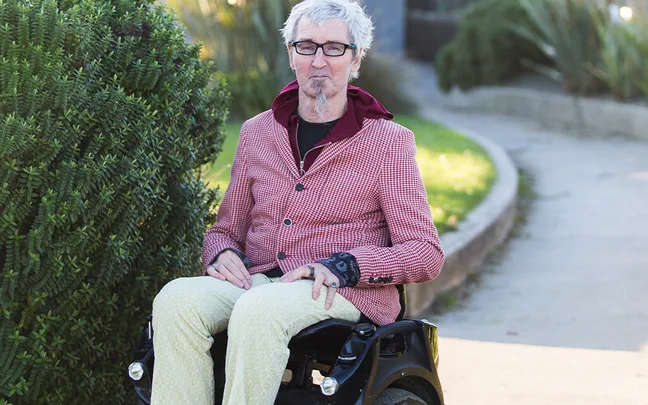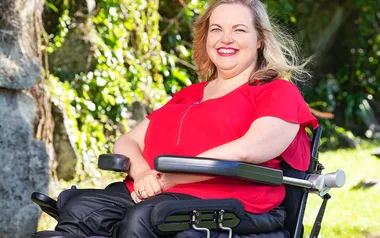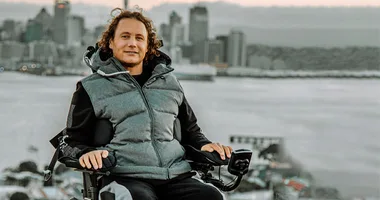For a long time after his catastrophic accident, elite mountain climber David Vass avoided looking out the windows of his Wānaka home.
Seeing the mountain scenery of Otago – the backdrop of where he’d spent much of his life climbing – was too much of a “continual slap in the face”.
As a way of coping, wheelchair-bound David moved away from the mountains to Christchurch. It’s here he came to terms with a completely different existence of life, found healing in writing and new ways of relating with nature.
“The mountains were my tūrangawaewae [places we feel connected],” shares the 61-year-old, who had never considered a life of immobility before.
“But now they seem less – or differently – meaningful. My life is no longer shaped around them. I spend my time more engaging my mind and taking mental risks rather than physical ones now.”
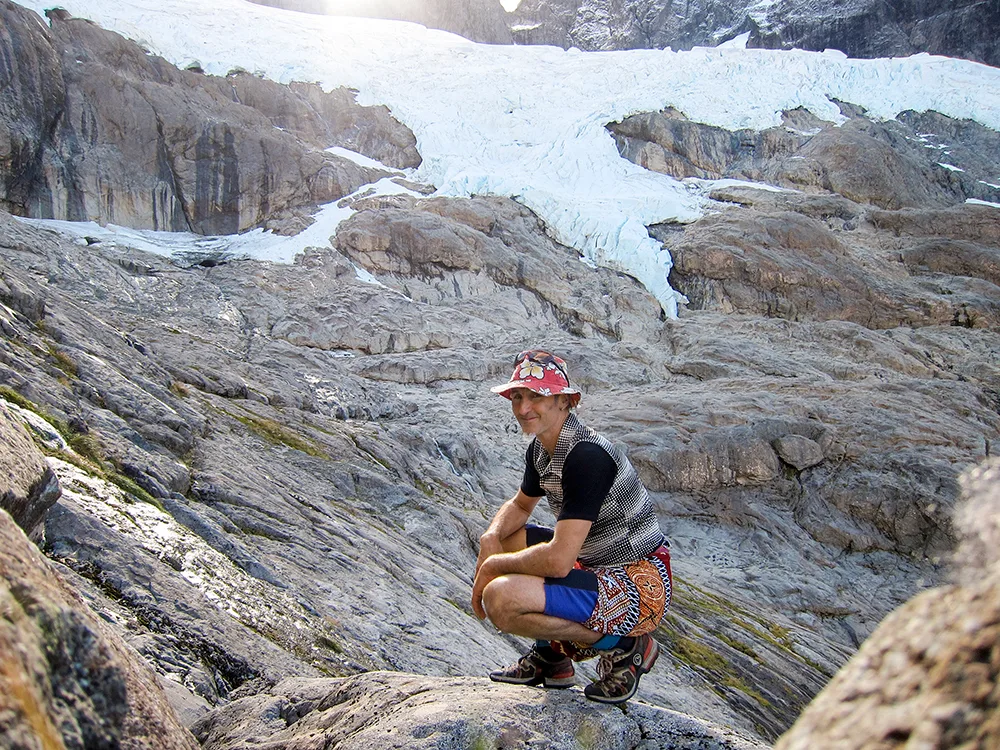
“Even though the mountains shaped my life, unlike people, they never cared for me,” says David.
It was in January 2015, while returning from the Darran Mountains in a gathering storm, that a minor slip left him with incomplete tetraplegia.
He and three friends were only an hour’s tramp from the car park when a little tree root broke from underneath his foot, causing David to trip and fall down a two-metre bank.
“To me, it felt like I had fallen down this huge cliff,” he recalls. “I landed really heavily, straight on my head. There was a huge crunch and I just knew I had broken my neck.”
Lying there, not moving and nearly dying of hypothermia, he hoped survival would be worth it.
And has it been?
“Oh, totally,” enthuses David, who spent seven months in the spinal unit of Christchurch’s Burwood Hospital. “But it took quite a while for me to feel that way.
“During that time, I had so much love and support. It opened my eyes to how much of that we all need. I had been a bit self-centred going to the mountains and I wasn’t paying attention to relationships
as much as I do now.”
The former adventure tourism operator began writing as a way to make sense of it all and because he didn’t want to forget his “previous life”, which meant so much to him.
His new book, Not Set in Stone, recounts the beginning of his outdoor life caving and rafting, before turning to climbing.
As a teen in 1978, climbing Mount Ruapehu was the perfect first summit. “When I arrived home exhausted that night, I wanted to tell my parents about it, but I couldn’t speak, so I just gave a thumbs-up,” tells David, who next climbed Arthur’s Pass, then Aoraki/Mount Cook.
He says one of the things that made the mountains worth it was the shared experience with friends – even the times when they were sleeping-bag-less and David had made a mistake in the provisioning department, so the only food left was half a block of almond-flavoured icing and a tin of sardines.
“Sharing one frozen sardine each after we made it down the glacier is such a sweet memory for me – but I suspect the others think of it differently,” he laughs. “Right now, I shake my head at taking almond icing in my pocket for high-energy food.”
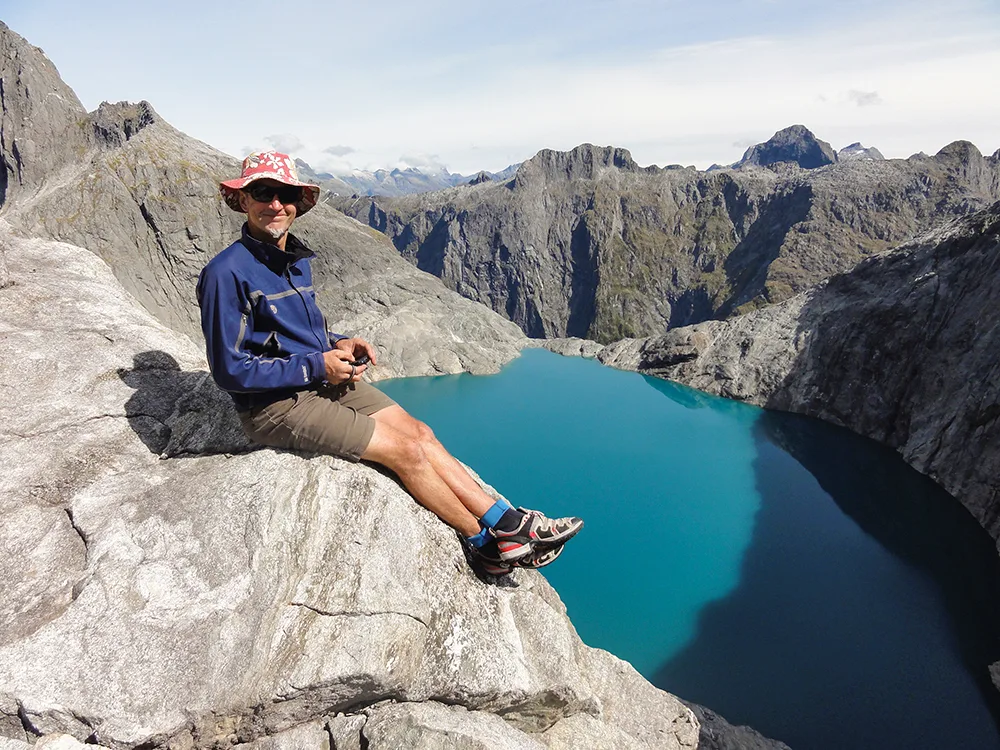
Climbing might be out, but David still revels in the great outdoors on his state-of-the art chair.
These days, David has found a new connection to the environment – his back garden and the beach. On the morning of our interview, he had just taken his state-of-the-art Omeo wheelchair (like a sit-on Segway) on a 20km round trip out to the mouth of the Waimakariri River.
“I love it because the ocean reminds you you’re at the edge of the wilderness. That really helps me. And every day somebody stops me on New Brighton Beach and goes, ‘Cool wheelchair’, so it’s an icebreaker to meeting people. Sometimes I’ve even needed a wee push after getting stuck in the sand a couple of times.”
For David, who grew up as a “fly-fishing nerd” in Rotorua, working out a new relationship with nature was important.
“It’s essential,” says David, who has a son, Monty, 27. “Even with all my climbing, it was that deeper level of interaction with nature that motivated it, rather than a physical or mental challenge.”
After recently completing a Master of Arts in creative writing, the author is now working on a follow-up book exploring how society’s relationship with nature has been forced to change.
“Writing has been a stepping stone to rediscovering the joy in life. I had to find something else to get me out of bed in the morning.
“Even though the mountains shaped my life, unlike people, they never cared for me. They were glorious companions, but ultimately, it was a one-sided affair.”
